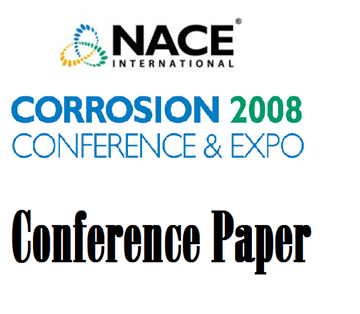Search
51314-4419-Influence of Metallurgical Processing Welding and Surface Treatments on Ethanol SCC of Caron Steel
Also Purchased
07574 SCC of Carbon Steel in Fuel Ethanol Service: Effect of Corrosion Potential and Ethanol Processing Source
Product Number:
51300-07574-SG
ISBN:
07574 2007 CP
Publication Date:
07574
$20.00
08153 Prevention of Internal SCC in Ethanol Pipelines
Product Number:
51300-08153-SG
ISBN:
08153 2008 CP
Publication Date:
2008
$20.00
09528 Corrosion and SCC Issues in Fuel Ethanol and Biofuels
Product Number:
51300-09528-SG
ISBN:
09528 2009 CP
Publication Date:
2009
$20.00




